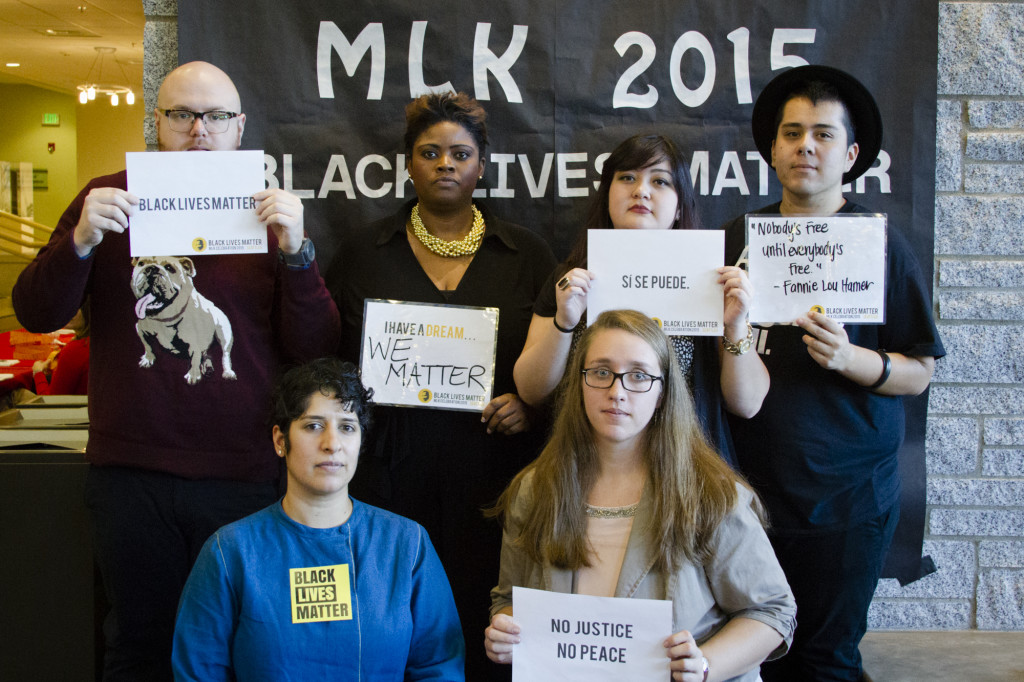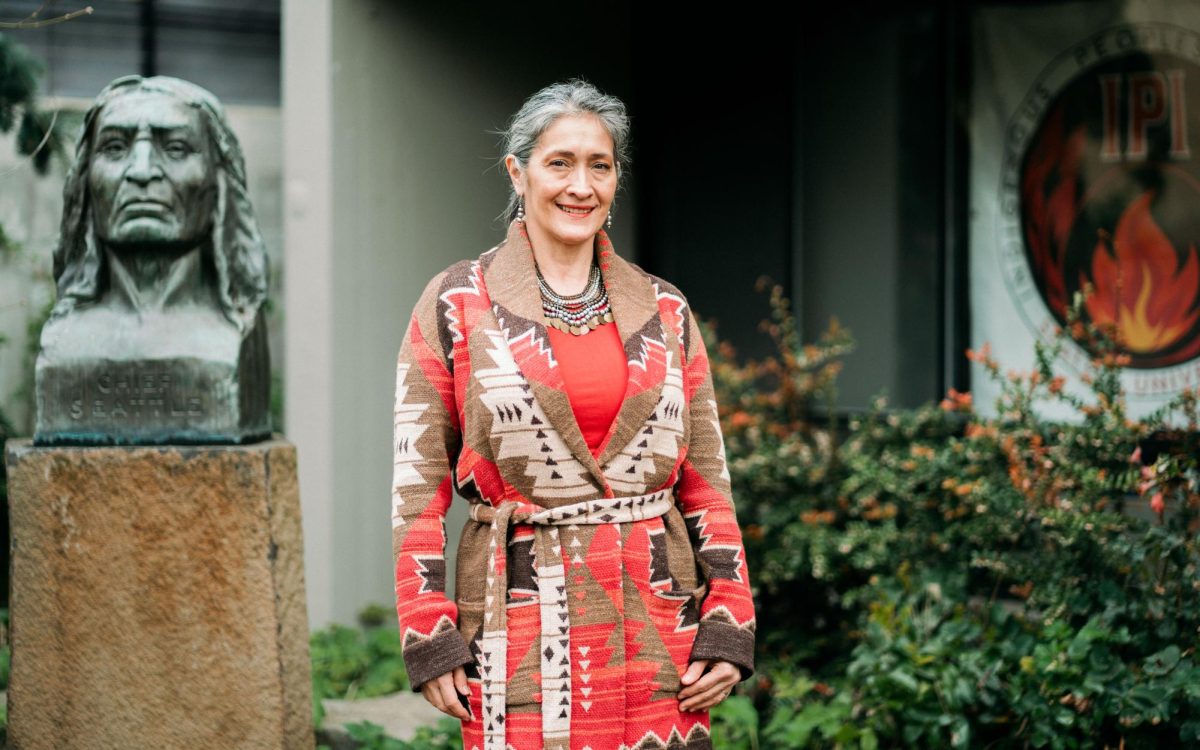The deaths of Michael Brown in Ferguson, Mo., and Eric Garner in Staten Island, NY added a somber element to the Seattle celebration of Martin Luther King Jr. Day. Hundreds, including several Seattle University students and Governor Jay Inslee, gathered at Garfield High School for a rally followed by a march down Jefferson Street to the Federal Courthouse downtown.
Throughout the event, “Whose lives matter? Black lives matter!” and “Hands up! Don’t shoot!” were shouted frequently, echoing chants that have been heard across the country since the events in Ferguson and Staten Island.
Before the march began, speakers, including Jelani Brown, a man from Ferguson who helped organize the initial protests, and Dr. Sheley Secrest, a graduate of the Seattle U School of Law, rallied the crowd. Secrest encouraged the marchers to “march with purpose,” and to focus not on the injustices against African-Americans in the ‘50s and ‘60s, but on those occurring now, because “the injustices we see now transcend time”.
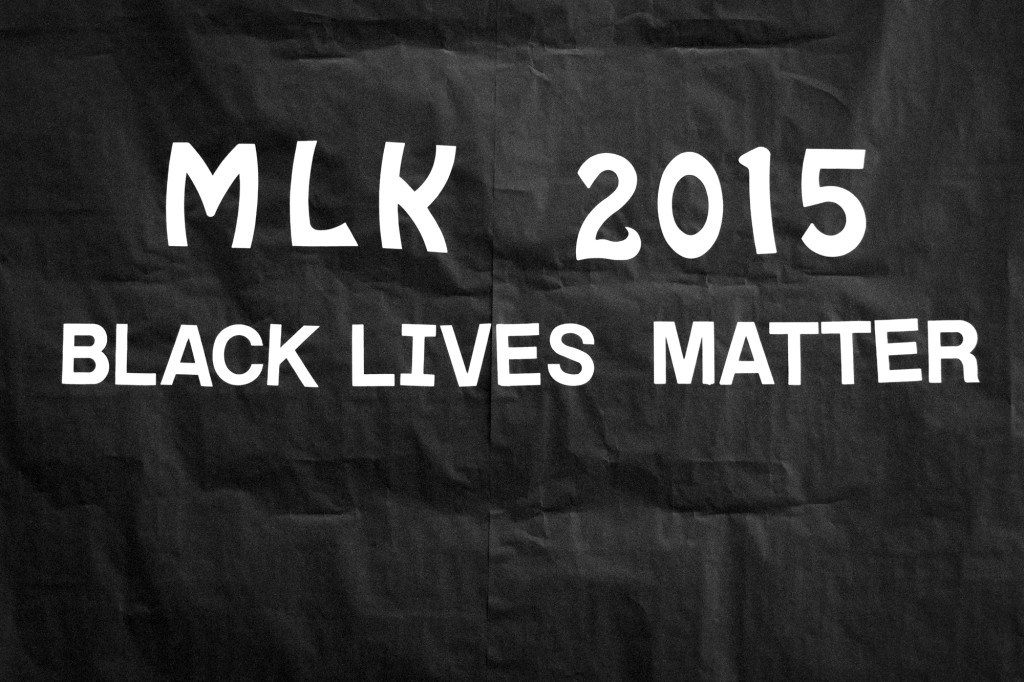
Seattle University’s Office of Multicultural Affairs and the planning committee for the MLK Jr. Celebration held an event on Tuesday in the Student Center Hearth. Students were invited to take their photos with si
The Office of Multicultural Affairs (OMA) at Seattle U held its own tribute to Martin Luther King with an event on Tuesday, Jan. 20.
Students had the opportunity to take pictures in the Student Center around noon with signs relating to social justice or #BlackLivesMatter, the event’s theme. They could write their own messages or use pre-made signs to express their support.
At 6 p.m., the photos were shown in a slideshow during a conversation in Pigott Auditorium with four panelists about “what’s been going on with black people and black bodies and black lives,” according to OMA director, Tiffany Gray.
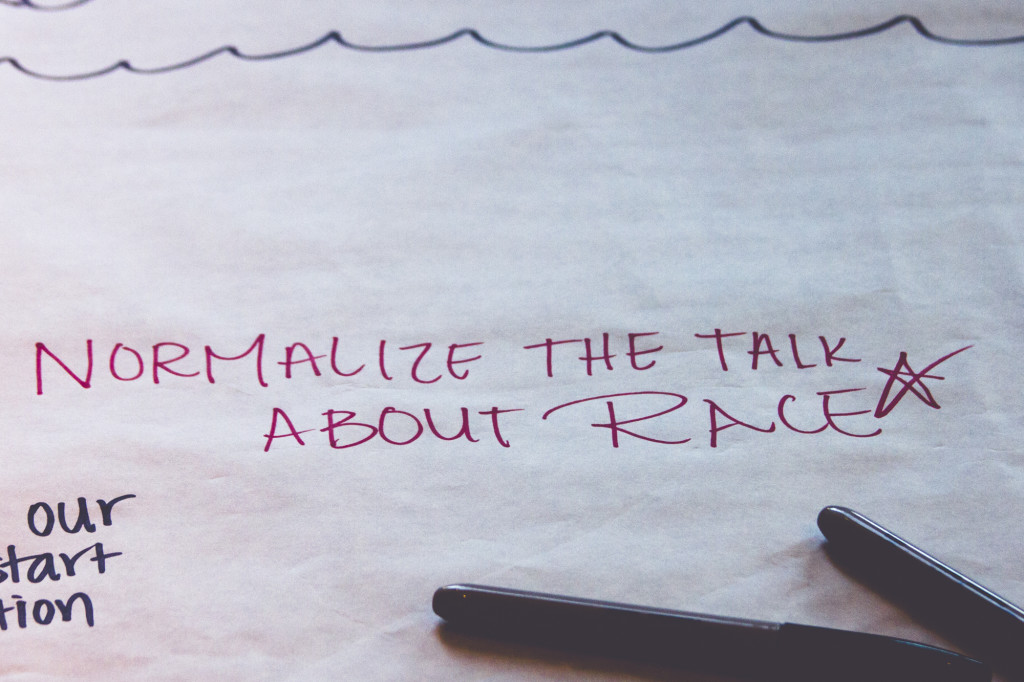
Students and staff were prompted to write a response to the question, “How can we make Seattle University more just?”
Seattle U School of Law professor Dr. Bryan Adamson, local writer Chad Goller-Sojourner, local writer and artist-curator, C. Davida Ingram and President of the African Students Association at Seattle U Tesi Uwibambe were the four panelists.
Professor Natasha Martin was the opening speaker of the event, and she implored the audience to recommit themselves to the journey in providing equity and inclusion for all and to eliminate the “erosion of rights and the festering divisiveness along racial lines.”
“We have an obligation to use our voices because it matters,” Martin said. “Let us proceed with compassion.”
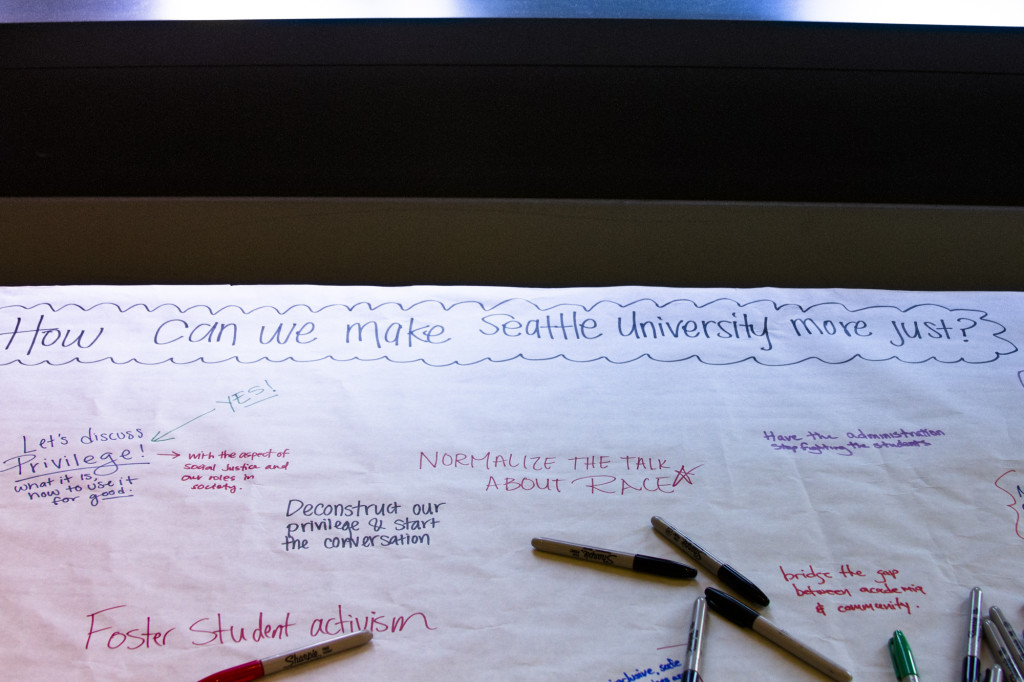
Students and staff were prompted to write a response to the question, “How can we make Seattle University more just?”
The event then transitioned into a video surrounding the concept of “all lives matter” versus “black lives matter” in which the dialogue involving the selected panelists officially began following the video’s conclusion.
The discussion focused a great deal on hope. It also delved into the systems and institutions that are threaded throughout our history in oppressing the rights of African Americans. The panelists emphasized the ‘social contracts’ that society creates and elements that perpetuate the cycle of poverty and make breaking the cycle difficult for African Americans.
“We have to seize the opportunity to love each other,” Ingram said. “White people don’t get the chance to see black individuals as human.”
The panelists maintained transparency and vulnerability as the discussion forged on, drawing on personal stories. They also touched on the legal, social, political and emotional implications of how black people are perceived in American society. Topics such as inherent and ‘unearned’ privilege were also acknowledged.
The conversation was then concluded by a Q&A session in which the audience could express their views on and actively participate in what was discussed. A reception followed shortly after on the first floor of Pigott.
The MLK planning committee, which includes members of OMA and other staff members, collaborated with OMA in planning, developing the theme and choosing the panelists at the event. They focused on who in the community could speak from their personal experience and from their discipline.
“We’re centered in the middle of a diverse community historically,” Gray said. “It’s important that we keep those community ties and connections and acknowledge people who are on campus as well.” Gray specifically mentioned director of Student Activities Bernie Liang, who helped with marketing and publicity.
In the future, OMA hopes to collaborate with a larger MLK planning committee, including student groups, to help shape what the future of what MLK-related events look like on campus.
With the theme #BlackLivesMatter, OMA’s event was heavily influenced by the recent events in Ferguson. Seattle U directly responded to that incident in December with two events: “OMA Speaks” and the “Die In”.
“OMA Speaks” is an event where people are invited to engage and connect with one another on certain topics of discussion. On Dec. 4 the event was centered on the topic of #BlackLivesMatter.
Campus Ministry spurred on the Dec. 5 “Die In” in which students gathered in the Hearth to recite chants, hold up signs and express their solidarity with the victims of institutionalized violence and racism.
OMA and its events give the community an opportunity to be open to one another.
Social justice is one of Seattle U’s key goals, and OMA is at the core of that movement, according to Gray.
“Not to say that we are the only space at the core,” Gray said. “But in the work that we do, the staff that we hire, the events we put on—at the core of all of that we take into account the care of our students and the complexity and wide diversity that comes with them.”
OMA strives to tackle the difficult and controversial issues of race and diversity. The office recognizes that conversations around race, for some people, can be heated, complicated and scary, and that reactions incite a multitude of different feelings for different people.
It is their hope that these events result in good discussion, dialogue and varying perspectives in a way that is challenging but also validating, healing and inclusive for people.
Many are supportive of OMA’s efforts and some feel that Seattle U as a whole could do more to confront issues surrounding racism and diversity.
Junior Delaney Piper was at the MLK rally at Garfield High School and explained her view that Seattle U often uses its diversity and anti-racism as a marketing device.
Piper believes the school does not do enough financially to support organizations that teach anti-racism. Piper referenced that OMA has a relatively small budget.
OMA and #BlackLivesMatter are groups focused on change, with their dedication exhibited in the recent MLK-related events.
Students have the opportunity to deepen their awareness and thinking at future Seattle U events. On Feb. 2, Goller-Sojourner from Tuesday’s panel discussion will return to teach a workshop on “How to Have a Meaningful Post Ferguson Conversation on Race” in Casey Commons.
On Feb. 9, the Diversity and Equity Education Program will also host an open-mic night at the hearth in the Student Center. This event is an opportunity for any student to display their talent, share their ideas and speak their truths.
These events are part of OMA’s larger goal to engage every student and staff member in the discussion about race and diversity. Through these events, they hope to create a more fruitful environment for all members of the Seattle U community.
“One thing I’ve learned about diversity at SU,” said senior Robert Gavino, “is that it is less about identity and skin color and more about personal narratives.”





